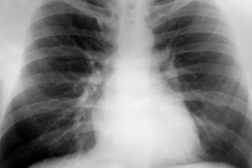Workplace Health
New report estimates nearly 18 million cancer survivors in U.S. by 2022
Growing, aging population & increased survival driving trend
June 26, 2012
Need for blood donations increasing worldwide, say health experts
WHO calls for more people to donate regularly
June 26, 2012
Smoking cessation PSAs wildly successful, says CDC
Landmark ad campaign yields almost 200,000 more calls to state quitlines after 12 weeks
June 20, 2012
Never miss the latest news and trends driving the safety industry
eNewsletter | Website | eMagazine
JOIN TODAYCopyright ©2024. All Rights Reserved BNP Media.
Design, CMS, Hosting & Web Development :: ePublishing







